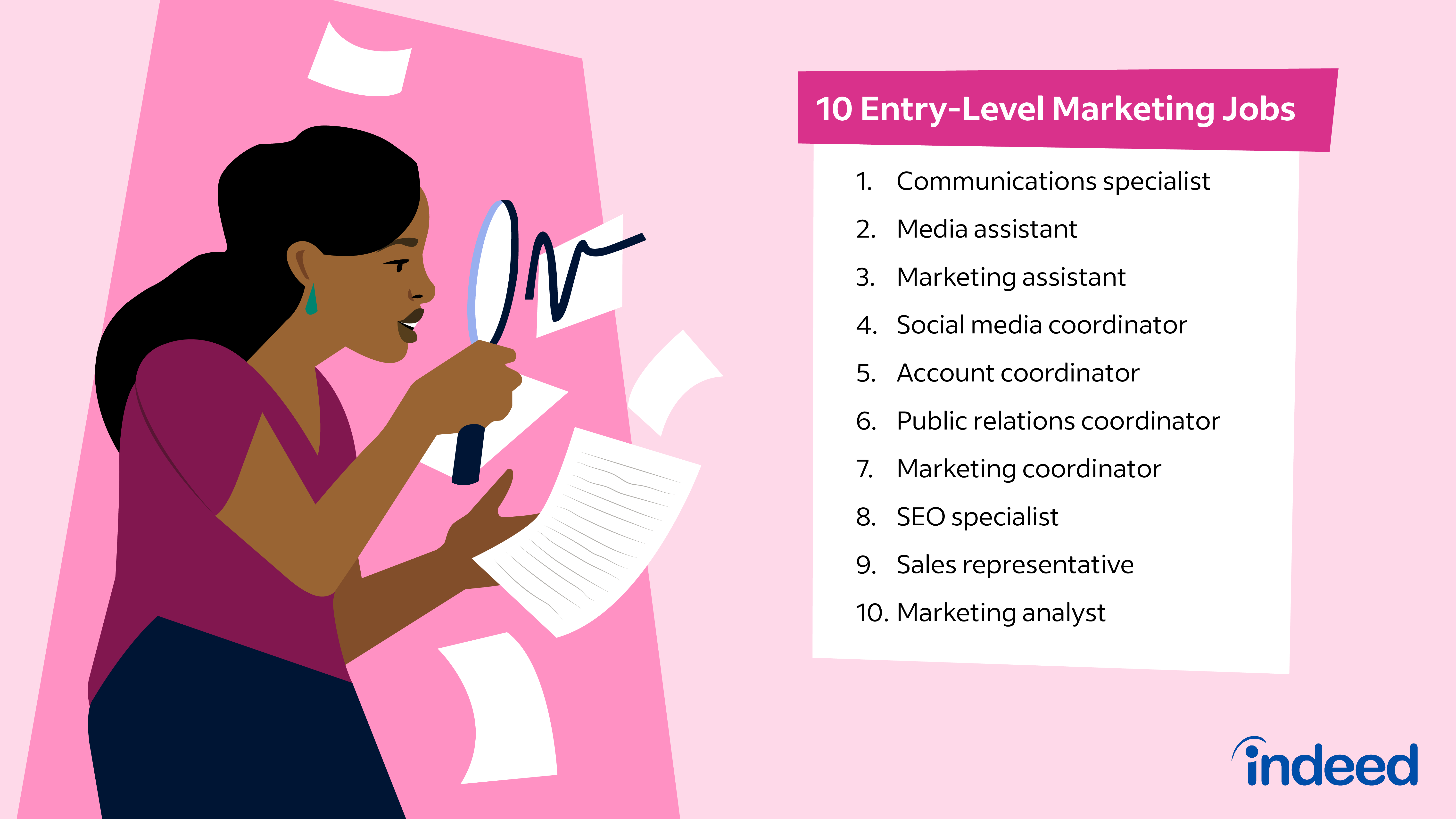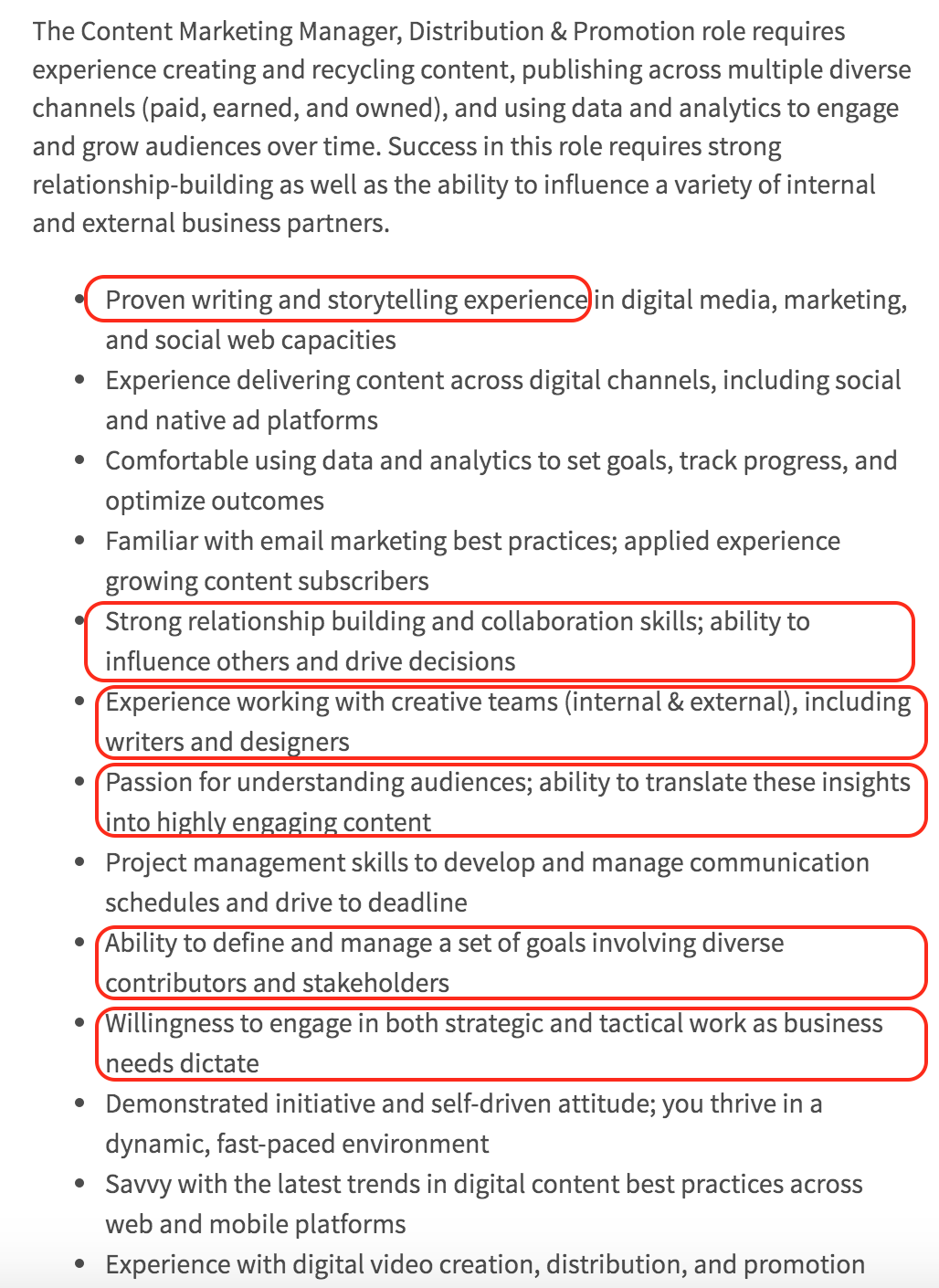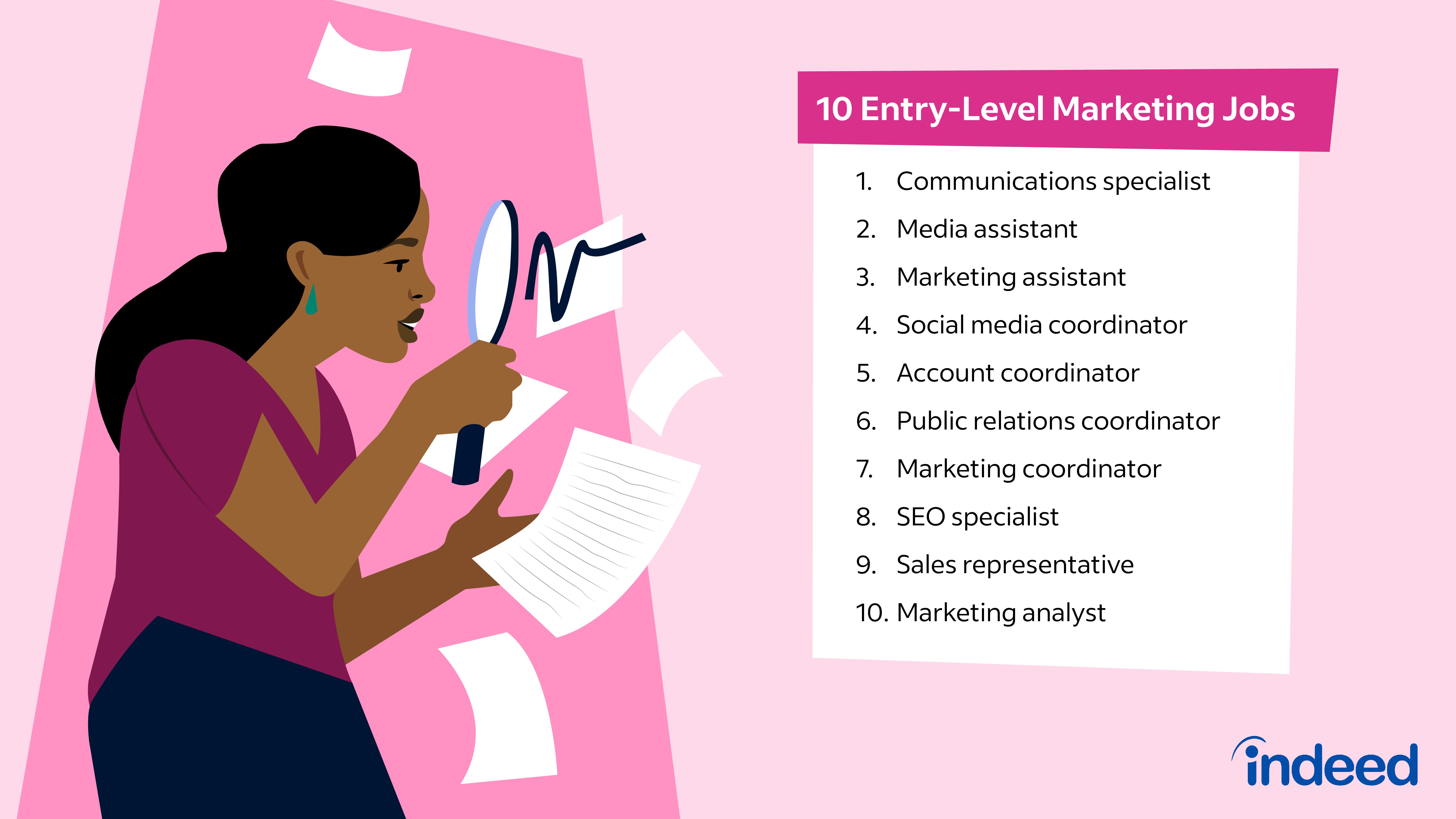-
What is an Entry Level Marketing Job to Start My Career?
- 1. What Skills Are Required for Entry-Level Marketing Jobs?
- 2. What Are Common Entry-Level Marketing Job Titles?
- 3. What Education is Needed for Entry-Level Marketing Jobs?
- 4. What Are the Typical Responsibilities in Entry-Level Marketing Roles?
- 5. How Can I Stand Out When Applying for Entry-Level Marketing Jobs?
- What is the entry-level position for marketing?
- How can I become a marketer with no experience?
- Is a marketing associate an entry-level job?
- Do you need experience for a marketing job?
- Frequently Asked Questions from Our Community
Starting a career in marketing can be both exciting and overwhelming, especially when navigating the term entry-level. An entry-level marketing job is typically the first step for recent graduates or career changers, offering foundational experience in the industry. These roles often focus on supporting marketing campaigns, analyzing data, and assisting with content creation. While they may not require extensive prior experience, they provide valuable opportunities to develop skills in areas like digital marketing, social media, and market research. Understanding what an entry-level marketing job entails can help you identify the right opportunities to launch your career and build a strong professional foundation.
What is an Entry Level Marketing Job to Start My Career?
An entry-level marketing job is typically the first step for individuals looking to build a career in the marketing field. These roles are designed for recent graduates or those with minimal professional experience, providing foundational knowledge and skills in areas such as market research, content creation, social media management, and campaign analysis. Entry-level positions often serve as a gateway to more advanced roles, allowing individuals to gain hands-on experience while learning from seasoned professionals.
See Also What is an entry level marketing job to start my career?
What is an entry level marketing job to start my career?1. What Skills Are Required for Entry-Level Marketing Jobs?
To succeed in an entry-level marketing role, candidates should possess a mix of hard and soft skills. Key skills include:
- Communication: Both written and verbal communication are essential for creating content and collaborating with teams.
- Analytical Thinking: The ability to interpret data and metrics is crucial for measuring campaign success.
- Creativity: Developing innovative ideas for campaigns and content is a must.
- Technical Proficiency: Familiarity with tools like Google Analytics, CRM software, and social media platforms is often required.
| Skill | Importance |
|---|---|
| Communication | High |
| Analytical Thinking | High |
| Creativity | Medium |
| Technical Proficiency | High |
2. What Are Common Entry-Level Marketing Job Titles?
Entry-level marketing roles come in various forms, each focusing on different aspects of the field. Some common titles include:
- Marketing Assistant: Supports marketing teams with administrative tasks and campaign execution.
- Social Media Coordinator: Manages and creates content for social media platforms.
- Content Writer: Develops written materials such as blogs, articles, and website copy.
- Market Research Analyst: Collects and analyzes data to inform marketing strategies.
 What's your favorite client portal software?
What's your favorite client portal software?| Job Title | Primary Responsibilities |
|---|---|
| Marketing Assistant | Campaign support, administrative tasks |
| Social Media Coordinator | Content creation, platform management |
| Content Writer | Writing blogs, articles, and copy |
| Market Research Analyst | Data collection and analysis |
3. What Education is Needed for Entry-Level Marketing Jobs?
Most entry-level marketing positions require at least a bachelor’s degree in marketing, business, communications, or a related field. However, some roles may accept candidates with relevant certifications or experience. Key areas of study include:
- Digital Marketing
- Consumer Behavior
- Advertising
- Statistics and Data Analysis
| Education Level | Relevance |
|---|---|
| Bachelor’s Degree | Essential |
| Certifications | Beneficial |
| Relevant Experience | Helpful |
4. What Are the Typical Responsibilities in Entry-Level Marketing Roles?
Entry-level marketing professionals often handle a variety of tasks to support broader marketing initiatives. Common responsibilities include:
- Assisting with Campaigns: Helping to plan and execute marketing campaigns.
- Content Creation: Writing and designing materials for digital and print media.
- Data Entry and Analysis: Inputting data and analyzing results to measure campaign effectiveness.
- Social Media Management: Scheduling posts and engaging with followers.
 How Hard to Break Into Marketing WITHOUT a Degree?
How Hard to Break Into Marketing WITHOUT a Degree?| Responsibility | Description |
|---|---|
| Campaign Assistance | Supporting planning and execution |
| Content Creation | Writing and designing materials |
| Data Analysis | Measuring campaign success |
| Social Media Management | Engaging with audiences |
5. How Can I Stand Out When Applying for Entry-Level Marketing Jobs?
To stand out in a competitive job market, candidates should focus on building a strong portfolio, gaining relevant experience, and showcasing their technical skills. Tips include:
- Internships: Gain hands-on experience through internships or volunteer work.
- Certifications: Obtain certifications in areas like Google Ads or HubSpot.
- Networking: Connect with professionals in the industry through events or LinkedIn.
- Portfolio: Showcase your work, such as blog posts, social media campaigns, or design projects.
| Strategy | Impact |
|---|---|
| Internships | High |
| Certifications | Medium |
| Networking | High |
| Portfolio | High |
What is the entry-level position for marketing?

 What's a Good Digital Asset Management Software?
What's a Good Digital Asset Management Software?The entry-level position for marketing is typically a Marketing Assistant or Marketing Coordinator. These roles are designed for individuals who are new to the field and provide foundational experience in various marketing activities. Responsibilities often include supporting marketing campaigns, conducting market research, managing social media accounts, and assisting with administrative tasks. These positions serve as a stepping stone for more advanced roles in the marketing industry.
What Does a Marketing Assistant Do?
A Marketing Assistant plays a crucial role in supporting the marketing team. Their responsibilities include:
- Assisting with marketing campaigns: Helping to plan, execute, and track the performance of campaigns.
- Conducting market research: Gathering data on competitors, industry trends, and customer preferences.
- Managing social media: Creating and scheduling posts, engaging with followers, and monitoring analytics.
What Skills Are Required for an Entry-Level Marketing Position?
To succeed in an entry-level marketing role, candidates need a mix of hard and soft skills, such as:
- Communication skills: Writing clear and compelling content for various marketing channels.
- Analytical skills: Interpreting data to measure campaign effectiveness.
- Technical skills: Proficiency in tools like Google Analytics, CRM software, and social media platforms.
What Are the Educational Requirements for Entry-Level Marketing Jobs?
Most entry-level marketing positions require at least a bachelor's degree in a related field. Common areas of study include:
- Marketing: Provides a solid foundation in marketing principles and strategies.
- Business Administration: Offers a broader understanding of business operations.
- Communications: Focuses on effective communication techniques, which are essential for marketing roles.
What Are the Career Growth Opportunities in Marketing?
Starting as a Marketing Assistant or Coordinator can lead to various advanced roles, such as:
- Marketing Specialist: Focuses on specific areas like digital marketing or content creation.
- Marketing Manager: Oversees entire marketing campaigns and teams.
- Brand Manager: Responsible for maintaining and enhancing a company's brand image.
How to Prepare for an Entry-Level Marketing Position?
To stand out as a candidate for an entry-level marketing role, consider the following steps:
- Build a portfolio: Showcase any relevant projects, such as social media campaigns or blog posts.
- Gain certifications: Obtain certifications in tools like Google Ads or HubSpot to demonstrate expertise.
- Network: Attend industry events and connect with professionals to learn about job opportunities.
How can I become a marketer with no experience?

How to Start Learning Marketing Basics
To begin your journey as a marketer with no experience, it is essential to learn the fundamentals of marketing. Start by understanding core concepts such as the 4 Ps of marketing (Product, Price, Place, Promotion), consumer behavior, and market research. Here’s how you can get started:
- Enroll in free or affordable online courses from platforms like Coursera, HubSpot Academy, or Google Digital Garage.
- Read marketing books such as Contagious by Jonah Berger or Influence by Robert Cialdini to gain insights into consumer psychology.
- Follow marketing blogs and podcasts to stay updated on industry trends and best practices.
Building a Personal Brand Online
Creating a personal brand is a powerful way to showcase your marketing skills, even without formal experience. Start by establishing a professional online presence:
- Create a LinkedIn profile and optimize it with relevant keywords, a professional photo, and a clear summary of your goals.
- Start a blog or social media account where you share insights, tips, or case studies about marketing.
- Engage with industry professionals by commenting on their posts, joining marketing groups, and networking online.
Gaining Practical Experience Through Volunteering or Internships
Practical experience is crucial for building your marketing skills. Look for opportunities to apply your knowledge in real-world scenarios:
- Volunteer for non-profits or small businesses to help them with their marketing efforts, such as social media management or email campaigns.
- Apply for internships or entry-level roles in marketing departments to gain hands-on experience.
- Offer to manage a friend’s or family member’s business marketing to build your portfolio.
Developing Essential Marketing Skills
To succeed as a marketer, you need to develop a mix of hard and soft skills. Focus on the following areas:
- Digital marketing skills like SEO, content creation, and social media advertising.
- Analytical skills to interpret data and measure campaign performance using tools like Google Analytics.
- Communication and creativity to craft compelling messages and campaigns that resonate with your audience.
Creating a Portfolio to Showcase Your Work
A strong portfolio is essential to demonstrate your marketing abilities to potential employers or clients. Here’s how to build one:
- Include examples of campaigns you’ve worked on, even if they were personal projects or volunteer work.
- Highlight measurable results, such as increased engagement, website traffic, or sales.
- Use platforms like Behance or a personal website to present your work professionally and attractively.
Is a marketing associate an entry-level job?

What is a Marketing Associate?
A Marketing Associate is typically an entry-level or early-career position within the marketing field. This role often involves supporting marketing campaigns, conducting market research, and assisting with the execution of marketing strategies. While it can be an entry-level job, some companies may require prior experience or specific skills, depending on the industry.
- Responsibilities: Assisting in the creation of marketing materials, managing social media accounts, and analyzing campaign performance.
- Skills Required: Strong communication, analytical thinking, and proficiency in marketing tools like Google Analytics or CRM software.
- Career Path: Often serves as a stepping stone to higher roles such as Marketing Specialist or Marketing Manager.
Is a Marketing Associate Considered Entry-Level?
Yes, a Marketing Associate is generally considered an entry-level position. It is designed for individuals who are new to the marketing industry and are looking to gain hands-on experience. However, the level of responsibility and required qualifications can vary depending on the company and industry.
- Entry-Level Criteria: Typically requires a bachelor's degree in marketing, business, or a related field.
- Experience: Some companies may prefer candidates with internships or part-time marketing experience.
- Growth Potential: Offers opportunities to learn and grow within the marketing field.
What Qualifications Are Needed for a Marketing Associate Role?
To qualify for a Marketing Associate position, candidates usually need a combination of education, skills, and sometimes experience. A bachelor's degree in marketing or a related field is often required, along with proficiency in marketing tools and platforms.
- Education: A degree in marketing, business, communications, or a related field is typically required.
- Technical Skills: Familiarity with tools like Google Analytics, SEO, and social media platforms.
- Soft Skills: Strong communication, teamwork, and problem-solving abilities.
What Does a Marketing Associate Do on a Daily Basis?
A Marketing Associate performs a variety of tasks to support the marketing team. These tasks can range from administrative duties to more strategic activities, depending on the company's needs and the individual's skill level.
- Campaign Support: Assisting in the planning and execution of marketing campaigns.
- Data Analysis: Collecting and analyzing data to measure campaign effectiveness.
- Content Creation: Helping to create marketing materials such as blog posts, social media content, and email campaigns.
How Does a Marketing Associate Role Differ from Other Marketing Positions?
The Marketing Associate role is distinct from other marketing positions in terms of responsibility, experience level, and scope of work. While higher-level roles like Marketing Manager or Director focus on strategy and leadership, a Marketing Associate typically handles more operational tasks.
- Experience Level: Entry-level compared to mid-level or senior roles.
- Scope of Work: More focused on execution rather than strategy.
- Career Progression: Often a starting point for advancing to more specialized or senior roles.
Do you need experience for a marketing job?

Is Experience Required for Entry-Level Marketing Jobs?
For entry-level marketing jobs, experience is not always mandatory, but it can be beneficial. Many employers look for candidates with a mix of education, skills, and practical exposure. Here are some key points to consider:
- Internships or part-time roles in marketing can provide valuable hands-on experience.
- Some companies may prioritize soft skills like communication, creativity, and teamwork over prior experience.
- Having a portfolio of personal projects or campaigns can demonstrate your capabilities.
How Important Is Experience for Mid-Level Marketing Roles?
For mid-level marketing roles, experience becomes more critical. Employers typically expect candidates to have a proven track record in the field. Consider the following:
- At least 2-5 years of experience in marketing or a related field is often required.
- Demonstrated success in managing campaigns, analyzing data, and achieving measurable results is essential.
- Specialized skills, such as digital marketing or content strategy, may be necessary depending on the role.
Can You Transition into Marketing Without Prior Experience?
Transitioning into marketing without prior experience is possible but requires strategic planning. Here’s how you can make the switch:
- Take online courses or certifications in marketing to build foundational knowledge.
- Leverage transferable skills from other fields, such as analytical thinking or project management.
- Network with professionals in the industry to learn about opportunities and gain insights.
What Are the Alternatives to Traditional Marketing Experience?
If you lack traditional marketing experience, there are alternative ways to showcase your qualifications. Here are some options:
- Create and manage your own social media campaigns or blog to demonstrate your skills.
- Volunteer for non-profits or small businesses to gain practical marketing experience.
- Participate in marketing competitions or hackathons to build your resume.
How Do Employers Evaluate Experience in Marketing Candidates?
Employers evaluate marketing candidates based on a combination of factors. Here’s what they typically look for:
- Relevant experience in areas like campaign management, SEO, or data analysis.
- Evidence of measurable results, such as increased engagement or sales growth.
- Strong communication and problem-solving skills, which are crucial for marketing success.
Frequently Asked Questions from Our Community
What does an entry-level marketing job typically involve?
An entry-level marketing job typically involves supporting the marketing team in various tasks such as market research, content creation, social media management, and campaign coordination. These roles are designed to help you gain practical experience and develop foundational skills in marketing. You may also assist in analyzing data, preparing reports, and collaborating with other departments to ensure marketing strategies align with business goals.
What qualifications are needed for an entry-level marketing position?
Most entry-level marketing positions require a bachelor's degree in marketing, business, communications, or a related field. However, some employers may accept candidates with relevant experience or certifications in digital marketing, social media, or analytics. Key skills include communication, creativity, analytical thinking, and proficiency in tools like Google Analytics or CRM software. Internships or volunteer work in marketing can also strengthen your resume.
What are the career growth opportunities in entry-level marketing?
Starting in an entry-level marketing role can open doors to various career paths, such as becoming a Marketing Specialist, Digital Marketing Manager, or Brand Manager. With experience, you can specialize in areas like content marketing, SEO, or data analysis. Many professionals also pursue advanced certifications or degrees to accelerate their career growth. Networking and staying updated on industry trends are crucial for long-term success in the marketing field.
How can I stand out when applying for entry-level marketing jobs?
To stand out when applying for entry-level marketing jobs, tailor your resume to highlight relevant skills and experiences, such as internships, freelance projects, or coursework in marketing. Create a portfolio showcasing your work, such as social media campaigns, blog posts, or marketing plans. Additionally, demonstrate your knowledge of current marketing trends and tools during interviews. Building a strong LinkedIn profile and connecting with industry professionals can also increase your visibility to potential employers.
Leave a Reply


Articles of interest